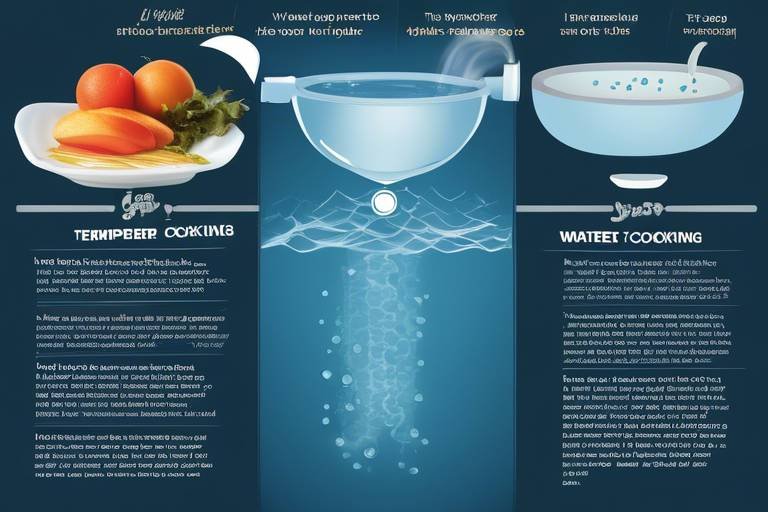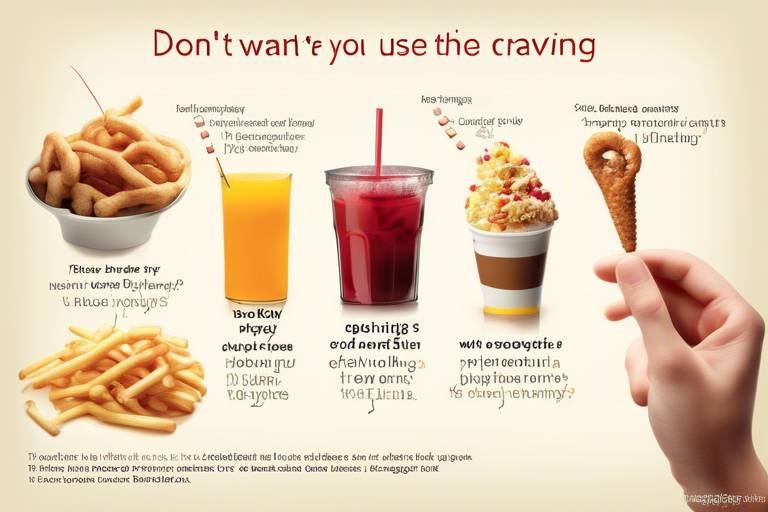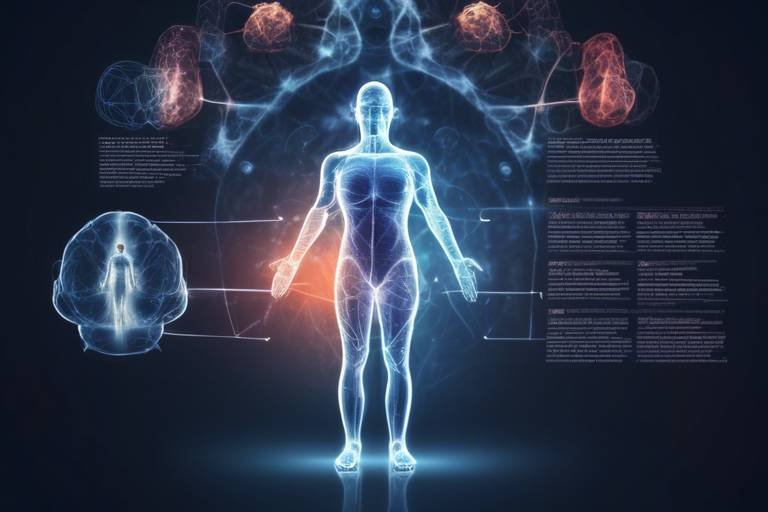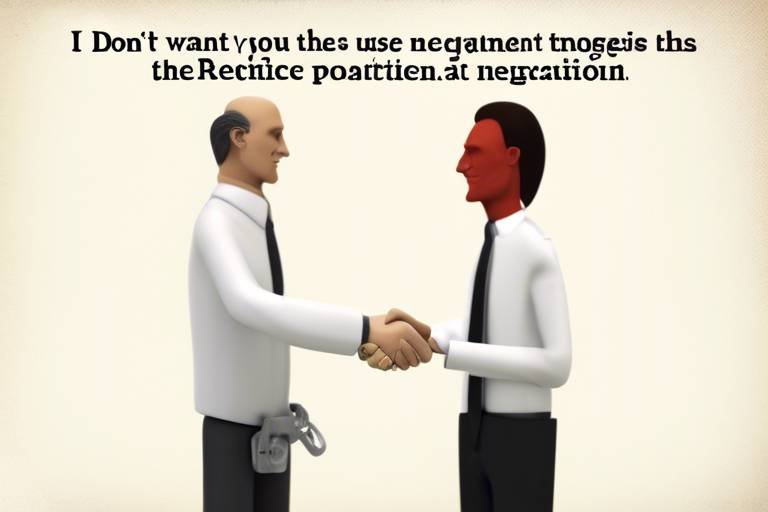The Science of Decision Making - How We Choose
Decision making is an intrinsic part of our daily lives, influencing everything from what we eat for breakfast to the career paths we follow. But have you ever stopped to consider the complex processes that guide these choices? It’s not just about weighing pros and cons; it’s a fascinating interplay of psychological, emotional, and cognitive factors that shape our decisions in both trivial and significant scenarios. In this article, we’ll dive deep into the science of decision making, exploring the various elements that come into play when we find ourselves at a crossroads.
Every day, we are bombarded with choices, and the sheer volume can be overwhelming. Imagine standing in front of a massive wall of cereal boxes at the grocery store—how do you choose? The answer lies in a myriad of influences, from our past experiences to the subtle cues in our environment. Understanding these influences not only sheds light on why we make certain choices but also empowers us to make better decisions in the future.
At the heart of decision making are cognitive biases and heuristics—mental shortcuts that help us navigate the complexities of choice. For instance, have you ever noticed how we often favor options that are more familiar? This is known as the familiarity heuristic, where we gravitate towards what we know, often at the expense of exploring potentially better alternatives. Recognizing these biases is the first step toward making more informed decisions.
Moreover, our choices are often influenced by our emotions. It’s not uncommon to find ourselves swayed by feelings rather than facts. For instance, have you ever made an impulsive purchase when you were feeling particularly happy or stressed? This emotional influence can lead to decisions that don’t always align with our rational thoughts. But here’s the kicker: understanding the role of emotions in decision making can help us navigate these waters more effectively.
As we journey through this exploration of decision making, we will also touch on the importance of emotional intelligence. This involves recognizing and managing our emotions, which can lead to better outcomes. When we’re aware of how our feelings impact our choices, we can approach decisions with a clearer mindset. Self-awareness, in particular, is a game changer—by understanding our emotional triggers, we can enhance our decision-making skills, both personally and professionally. Imagine being able to pause and reflect before reacting, making choices that truly resonate with your values.
Additionally, we’ll examine how empathy plays a crucial role in collaborative decision making. When we consider the feelings and perspectives of others, our choices can foster stronger relationships and better outcomes. In a world where teamwork is key, empathy becomes a vital ingredient in the decision-making process.
However, it’s essential to recognize the phenomenon of decision fatigue, which refers to the decline in the quality of our decisions after making numerous choices. Have you ever felt mentally drained after a long day of making decisions? This is a real challenge many face, and it can lead to hasty, poor choices. We’ll explore strategies to combat decision fatigue, ensuring that we remain sharp and thoughtful in our choices.
As we delve deeper, we’ll contrast rational and intuitive decision-making processes. While rational thinking relies on logic and analysis, intuitive decisions often stem from gut feelings and subconscious cues. Understanding when to trust our intuition and when to rely on analytical thinking can lead to more effective decision-making strategies.
In conclusion, the science of decision making is a rich tapestry woven from various threads of psychology, emotion, and cognition. By understanding the intricate processes behind our choices, we can become more adept at navigating the complexities of life. So, the next time you find yourself at a crossroads, remember the powerful forces at play and use this knowledge to guide you toward better decisions.
- What is decision fatigue? Decision fatigue is the deterioration of our decision-making quality after a long session of making choices.
- How can I improve my decision-making skills? By developing emotional intelligence, increasing self-awareness, and practicing analytical thinking, you can enhance your decision-making abilities.
- Is it better to rely on intuition or analytical thinking? Both have their merits; it’s essential to find a balance between the two based on the situation at hand.

The Psychology of Choice
Understanding the intricate web of psychological principles that govern our choices can be a real eye-opener. Why do we often find ourselves making decisions that seem irrational or impulsive? The answer lies in the realm of cognitive biases and heuristics, which are mental shortcuts that help us navigate the complex landscape of choices we face daily. These biases can skew our perception and lead us to make decisions that might not align with logical reasoning. For instance, the availability heuristic causes us to rely on immediate examples that come to mind when evaluating a specific topic, which can distort our judgment.
Imagine you're at a restaurant with a menu full of delicious options. You might choose a dish not because it's the best choice, but because it was the first one that popped into your head. This is a classic example of how our brains can trick us into thinking we’re making informed decisions when, in fact, we’re just reacting to what’s most readily available in our memory. Another common bias is the confirmation bias, where we tend to favor information that confirms our pre-existing beliefs, leading us to ignore contradictory evidence. This can heavily influence important decisions, from choosing a political stance to selecting a career path.
Moreover, the context in which a decision is made can significantly impact our choices. For example, the framing effect shows that the way information is presented can alter our perception of it. If a product is labeled as "90% fat-free," it might seem more appealing than if it's described as "10% fat." This subtle shift in wording can lead to a completely different decision-making process. Understanding these psychological phenomena not only sheds light on our decision-making habits but also equips us to make more informed and rational choices in our lives.
In a world filled with choices, being aware of these psychological factors allows us to step back and critically evaluate our decisions. By recognizing when we are falling prey to biases, we can actively work to counteract their effects. This awareness can transform the way we approach decisions, making us more deliberate and thoughtful in our choices. So, the next time you find yourself at a crossroads, take a moment to reflect: Are you relying on cognitive shortcuts, or are you engaging in a more rational thought process?
- What is a cognitive bias?
A cognitive bias is a systematic pattern of deviation from norm or rationality in judgment. It often leads to illogical conclusions or decisions.
- How can understanding cognitive biases improve decision making?
By recognizing cognitive biases, we can take steps to mitigate their impact, leading to more rational and informed choices.
- What is the availability heuristic?
The availability heuristic is a mental shortcut that relies on immediate examples that come to mind when evaluating a specific topic, leading to skewed perceptions.
- How does the framing effect influence decisions?
The framing effect demonstrates that the way information is presented can significantly affect our choices and perceptions.

The Role of Emotions
When we think about decision making, many of us might picture a logical process, a series of steps leading to a rational conclusion. However, emotions play a critical role in shaping our choices, often more than we realize. Imagine standing at a crossroads, where one path is the sensible choice and the other is driven by your feelings. Which way do you go? More often than not, our emotions can lead us down a path that feels right, even if it defies logic.
Emotions can act as a double-edged sword in decision making. On one hand, they can provide valuable insights and guide us toward choices that align with our values and desires. On the other hand, unchecked emotions can cloud our judgment, leading to impulsive decisions that we might regret later. For instance, consider a situation where you're feeling particularly stressed or anxious. In such moments, your ability to assess a situation objectively might be compromised, leading you to make hasty choices. This is where understanding the interplay between emotions and decision making becomes essential.
One fascinating aspect of emotions in decision making is how they can sometimes lead to irrational choices. Have you ever bought something on impulse, only to regret it later? That's a classic example of how emotions can override rational thought. When we experience strong feelings—be it excitement, fear, or sadness—these emotions can hijack our decision-making processes. For example, a person might choose to stay in a toxic relationship due to the fear of being alone, even when they know logically that it's not the best choice for their well-being.
Moreover, emotions can also serve as powerful motivators. They can push us to take action when we might otherwise hesitate. Think about the last time you felt a surge of joy or excitement about a new opportunity. That feeling likely propelled you to make a decision that you might have otherwise overthought. In this way, emotions can act as a catalyst for change, helping us break free from indecision and take the leap.
To illustrate the impact of emotions on decision making, consider the following table that summarizes how different emotions can influence our choices:
| Emotion | Possible Impact on Decision Making |
|---|---|
| Joy | Encourages risk-taking and openness to new experiences |
| Fear | Leads to avoidance of risks and potentially missed opportunities |
| Sadness | Can result in withdrawal and indecisiveness |
| Anger | May prompt rash decisions or confrontations |
Ultimately, the key to effective decision making lies in finding a balance between our emotions and rational thought. Recognizing when our feelings are influencing our choices can empower us to take a step back and evaluate the situation more objectively. It's essential to develop a keen awareness of how our emotions affect our decisions, allowing us to navigate life's choices with greater clarity and confidence.
In conclusion, emotions are not just fleeting feelings; they are integral to our decision-making processes. By understanding their role, we can harness their power to make choices that resonate with our true selves while minimizing the risk of impulsive actions. So, the next time you face a decision, take a moment to check in with your emotions. Are they guiding you toward a better outcome, or are they leading you astray?
- How do emotions influence decision making? Emotions can provide insights that guide our choices, but they can also cloud judgment, leading to impulsive decisions.
- Can I improve my decision-making skills? Yes! By increasing self-awareness and recognizing how emotions affect your choices, you can make more informed decisions.
- What should I do if my emotions are overwhelming my decisions? Take a step back, assess the situation objectively, and consider seeking advice from trusted friends or professionals.

Emotional Intelligence
Emotional intelligence, often abbreviated as EI or EQ, is a fascinating concept that plays a pivotal role in how we make decisions. It’s not just about recognizing your own feelings; it’s about understanding emotions in yourself and others, and using that knowledge to guide your behavior and decision-making processes. Imagine trying to navigate a complex maze. Without a clear understanding of your emotions, you might find yourself lost, making choices that lead you further away from your goals. But with high emotional intelligence, you can navigate the maze with ease, making informed decisions that align with your true desires.
At its core, emotional intelligence encompasses several key components that work together to enhance our decision-making skills:
- Self-awareness: This is the ability to recognize and understand your own emotions. When you’re self-aware, you can identify how your feelings influence your decisions, allowing you to make choices that are more aligned with your values.
- Self-regulation: This involves managing your emotions effectively, especially in stressful situations. By regulating your feelings, you can avoid impulsive decisions that you might regret later.
- Empathy: Understanding the emotions of others is crucial in collaborative settings. Empathy allows you to consider the perspectives of others, leading to more inclusive and informed decisions.
- Social skills: These skills help you communicate effectively and build strong relationships, which are essential when making group decisions.
Research shows that individuals with high emotional intelligence are often better decision-makers. They can assess situations more accurately, take into account the emotional climate, and anticipate how their choices will affect others. For instance, in a workplace setting, a manager who possesses strong emotional intelligence can gauge team morale and adjust their decisions accordingly, fostering a positive environment and enhancing productivity.
Moreover, emotional intelligence can significantly impact personal relationships. When you understand your own emotions and those of your partner, for example, you can navigate conflicts more effectively. Instead of reacting impulsively, you can respond thoughtfully, leading to healthier interactions and better outcomes.
In summary, emotional intelligence is not just a buzzword; it’s a crucial skill that can transform the way we make decisions. By cultivating self-awareness, self-regulation, empathy, and social skills, we can enhance our decision-making abilities and lead more fulfilling lives. So, the next time you face a tough choice, take a moment to check in with your emotions. They might just hold the key to making the best decision.
- What is emotional intelligence? Emotional intelligence refers to the ability to recognize, understand, and manage our own emotions as well as the emotions of others.
- Why is emotional intelligence important in decision-making? High emotional intelligence allows individuals to make more informed and thoughtful decisions by considering the emotional impact on themselves and others.
- Can emotional intelligence be developed? Yes, emotional intelligence can be improved with practice and self-reflection, such as through mindfulness and active listening exercises.
- How does emotional intelligence affect relationships? It enhances communication and understanding, leading to healthier and more productive interactions.

Self-awareness in Decisions
Self-awareness is like having a personal compass that guides us through the often turbulent waters of decision-making. When we take the time to reflect on our thoughts, feelings, and motivations, we gain a clearer understanding of what drives our choices. Imagine standing at a crossroads, where each path represents a different decision. Without self-awareness, we might blindly choose a path based on external influences or fleeting emotions. However, with a heightened sense of self-awareness, we can evaluate each option more critically, considering not just the immediate benefits but also how our choices align with our long-term goals and values.
Being self-aware means recognizing our emotional triggers, which can significantly impact our decisions. For instance, if we know that stress leads us to make hasty choices, we can take a step back during tense moments and reassess our options. This ability to pause and reflect can prevent us from falling into the trap of impulsive decision-making. Furthermore, self-awareness allows us to identify patterns in our behavior, helping us understand why we tend to make certain choices repeatedly. By acknowledging these patterns, we can work towards making more informed and deliberate decisions.
Additionally, self-awareness enhances our ability to communicate our needs and intentions effectively. When we understand ourselves better, we can articulate our thoughts and feelings to others, fostering clearer and more productive conversations. This is particularly important in collaborative settings, where decisions often involve multiple stakeholders. By being self-aware, we can contribute meaningfully to group discussions, ensuring that our perspectives are considered while also being open to the insights of others.
To cultivate self-awareness in decision-making, consider the following practices:
- Journaling: Regularly writing down your thoughts and feelings can help you identify recurring themes and triggers.
- Mindfulness Meditation: Practicing mindfulness can enhance your ability to observe your thoughts without judgment, leading to greater clarity.
- Feedback from Others: Seeking input from trusted friends or colleagues can provide valuable insights into your decision-making patterns.
In conclusion, self-awareness is not just a buzzword; it’s a powerful tool that can transform the way we make decisions. By understanding our emotions, recognizing our triggers, and communicating effectively, we can navigate the complexities of life with greater confidence and clarity. So, the next time you face a significant decision, take a moment to check in with yourself. You might just discover that the path to the best choice lies within.
1. What is self-awareness in decision-making?
Self-awareness in decision-making refers to the ability to recognize and understand one’s own thoughts, emotions, and motivations that influence choices. It allows individuals to make more informed and deliberate decisions.
2. How can I improve my self-awareness?
You can improve self-awareness through practices such as journaling, mindfulness meditation, and seeking feedback from others. These methods help you reflect on your thoughts and behaviors.
3. Why is self-awareness important in group decision-making?
Self-awareness is crucial in group decision-making because it helps individuals articulate their perspectives clearly, understand their emotional triggers, and contribute to discussions in a constructive manner.
4. Can self-awareness help reduce impulsive decisions?
Yes, self-awareness can help reduce impulsive decisions by allowing individuals to recognize their emotional states and take a moment to reflect before making choices, leading to more thoughtful outcomes.
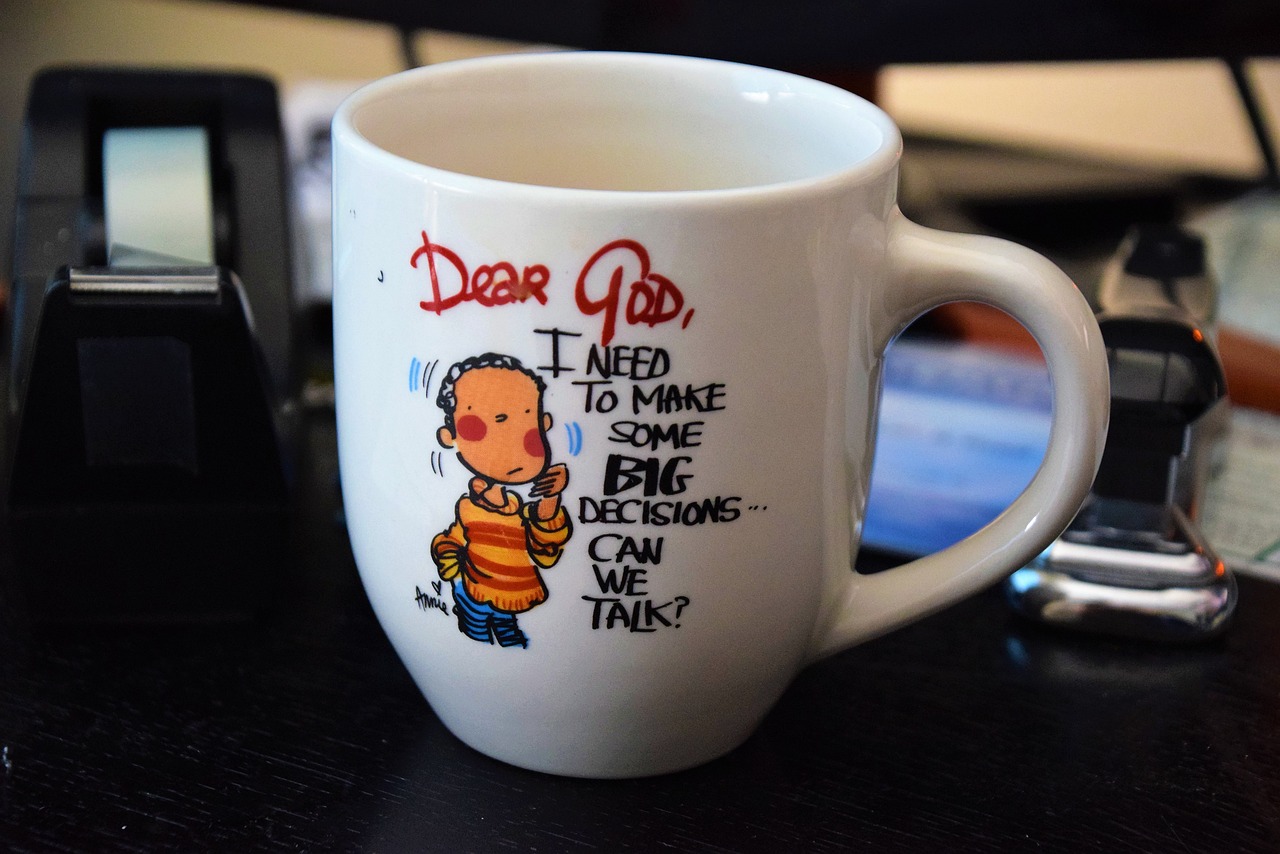
Empathy and Decision Making
When it comes to decision making, empathy plays a pivotal role that often goes unnoticed. Imagine you're in a meeting, brainstorming ideas for a project. You have your thoughts and opinions, but how do you take into account the perspectives of your colleagues? That’s where empathy steps in. It allows us to step outside our own shoes and see the world through someone else's eyes, which can be crucial for making well-rounded decisions.
Empathy isn’t just about feeling sorry for someone or being nice; it’s about understanding their emotions, motivations, and needs. When we incorporate empathy into our decision-making process, we elevate our choices from mere personal preferences to collective solutions that consider the well-being of others. This can lead to stronger relationships and a more cohesive team dynamic, especially in collaborative environments.
So, how does empathy influence our decisions? It can guide us in several ways:
- Enhancing Communication: Empathy fosters open dialogue. When we understand how our decisions impact others, we can communicate more effectively, leading to better collaboration.
- Reducing Conflict: Decisions made without empathy can lead to misunderstandings and conflicts. By considering others' feelings, we can navigate potential issues before they escalate.
- Increasing Inclusivity: Empathy encourages us to consider diverse perspectives, which can lead to more innovative solutions and a sense of belonging for everyone involved.
Moreover, the impact of empathy extends beyond just interpersonal relationships. It can also influence the overall success of a decision. For instance, a company that prioritizes empathy in its decision-making process is likely to create products and services that resonate with its customers, leading to increased satisfaction and loyalty. In contrast, decisions made in a vacuum, without considering the emotional landscape, can result in products that miss the mark and fail to connect.
In essence, integrating empathy into our decision-making framework not only enriches our choices but also fosters an environment where everyone feels valued and heard. It’s like adding a secret ingredient to a recipe; it transforms the ordinary into the extraordinary. So, the next time you face a decision, ask yourself: How would this choice affect others? By doing so, you may find that your decisions become more thoughtful, inclusive, and ultimately, more effective.
- What is empathy in decision making?
Empathy in decision making refers to the ability to understand and consider the feelings, perspectives, and needs of others when making choices. - Why is empathy important in teamwork?
Empathy fosters better communication, reduces conflict, and creates a more inclusive environment, all of which are essential for effective teamwork. - How can I improve my empathy skills?
Improving empathy skills can be achieved through active listening, asking open-ended questions, and putting yourself in others' shoes during discussions.

Decision Fatigue
Have you ever found yourself staring blankly at a menu, unable to choose what to eat after a long day? Or maybe you’ve felt overwhelmed by the sheer number of options while shopping online, leading to a hasty decision that you later regretted? Welcome to the world of , a phenomenon that affects us all, often without us even realizing it. Decision fatigue refers to the mental exhaustion that arises after making countless choices, which can significantly impair our ability to make sound decisions as the day progresses.
Imagine your brain as a battery; it starts the day fully charged, ready to tackle the challenges ahead. However, as you make decisions—big or small—your mental energy drains, leading to a state where your decision-making skills falter. This is especially true in our fast-paced world, where we are bombarded with choices at every turn. From what to wear in the morning to which email to respond to first, each decision chips away at our cognitive resources.
Research has shown that as we face more decisions, we become less discerning, often opting for the easiest choice rather than the best one. This can lead to poor outcomes, whether in our personal lives or professional settings. For example, a study conducted by psychologists revealed that judges were more likely to grant parole at the beginning of the day than later on, indicating how decision fatigue can impact even critical life-altering choices.
To combat decision fatigue, it’s essential to recognize its signs and implement strategies to preserve our mental energy. Here are some effective tips:
- Prioritize Important Decisions: Tackle significant choices when your mind is fresh, ideally in the morning.
- Limit Options: Reduce the number of choices you face. For instance, if you’re shopping for clothes, narrow it down to a few styles or colors.
- Create Routines: Establishing daily routines can minimize the number of decisions you need to make, conserving your mental energy for more critical tasks.
- Take Breaks: Short breaks can help recharge your brain, allowing you to approach decisions with a clearer mind.
By understanding decision fatigue and its implications, we can develop strategies to mitigate its effects. It’s about finding a balance—knowing when to rely on our analytical skills and when to trust our gut. As we navigate through life’s myriad choices, being aware of our mental state can empower us to make better decisions, ultimately leading to a more fulfilling life.
What is decision fatigue?
Decision fatigue is the mental exhaustion that occurs after making numerous decisions, leading to a decline in the quality of those decisions over time.
How can I recognize decision fatigue?
Signs of decision fatigue include feeling overwhelmed by choices, making impulsive decisions, or experiencing difficulty in concentrating on important decisions.
What are some strategies to combat decision fatigue?
Strategies include prioritizing important decisions, limiting options, establishing routines, and taking regular breaks to recharge your mental energy.
Can decision fatigue affect my personal relationships?
Yes, decision fatigue can impact personal relationships by leading to poor choices that may affect interactions with others, as well as creating stress and frustration in decision-making processes.

Rational vs. Intuitive Decisions
When it comes to making choices, we often find ourselves caught between two powerful forces: rational thinking and intuitive feelings. It's like standing at a crossroads, where one path is paved with logic and analysis, while the other is filled with gut instincts and emotions. Understanding how these two approaches work can significantly enhance our decision-making skills.
Rational decision-making is grounded in logic, data, and systematic evaluation. Imagine you’re trying to choose a new car. You might create a list of criteria such as price, fuel efficiency, and safety ratings. Then, you research various models, compare features, and ultimately select the car that meets your defined criteria best. This methodical approach ensures that you’re making an informed choice based on concrete information.
On the flip side, intuitive decision-making relies on our subconscious mind and personal experiences. It's that instant feeling you get when you meet someone new or the inexplicable urge to take a particular route home. Think of it as a mental shortcut—your brain quickly assesses past experiences and emotions to guide you. For instance, if you’ve had positive experiences with a specific brand, you might instinctively choose it again, even without extensive research.
Both rational and intuitive approaches have their merits and drawbacks. Rational decisions can lead to well-thought-out outcomes, but they can also be time-consuming and overwhelming, especially when faced with too many options. Conversely, intuitive decisions are often quicker and can be more satisfying, but they may lack the thoroughness of rational analysis. This duality raises an essential question: How do we find the right balance?
To navigate this complex landscape, consider the following strategies:
- Know Your Context: Some situations demand a rational approach, especially when the stakes are high, such as financial investments or career changes. In contrast, intuitive decisions may work better in personal matters or when time is of the essence.
- Trust Your Experience: If you have a wealth of experience in a particular area, your intuition can be a valuable ally. However, remain open to revisiting your decisions with a rational lens if new information arises.
- Combine Both Approaches: Use rational analysis to gather information and then allow your intuition to guide the final decision. This blend can lead to more comprehensive and satisfying outcomes.
In conclusion, the dance between rational and intuitive decision-making is a delicate one. By recognizing the strengths and weaknesses of each approach, we can become more adept at choosing the right path for ourselves. Whether you lean towards logic or instinct, the key is to remain flexible and responsive to the unique demands of each situation.
Q1: Can I rely solely on intuition for important decisions?
A1: While intuition can provide valuable insights, it's generally advisable to combine it with rational analysis, especially for significant choices.
Q2: How can I improve my rational decision-making skills?
A2: You can enhance your rational thinking by practicing analytical skills, seeking feedback, and learning to evaluate information critically.
Q3: Is it possible to train my intuition?
A3: Yes! You can develop your intuition by reflecting on past decisions, understanding your emotional responses, and gaining more experience in specific areas.

Analytical Thinking
Analytical thinking is a vital skill that empowers individuals to break down complex problems into manageable parts, enabling clearer understanding and more effective solutions. Imagine you're trying to solve a jigsaw puzzle; if you simply dump all the pieces on the table without a plan, it can be overwhelming. But if you start by sorting the pieces by color or edge, you can see the bigger picture more easily. This is the essence of analytical thinking—it's about organizing information in a way that makes sense and leads to actionable insights.
At its core, analytical thinking involves several key components:
- Data Collection: Gathering relevant information is the first step. This could be quantitative data, like statistics, or qualitative data, such as opinions and experiences.
- Evaluation: Once you have the data, the next step is to assess its reliability and validity. Not all information is created equal, and discerning the credible sources from the noise is crucial.
- Pattern Recognition: After evaluating the information, the ability to identify trends and patterns can provide invaluable insights that inform your decisions.
- Conclusion Drawing: Finally, analytical thinking culminates in forming conclusions based on the evidence gathered. This is where you synthesize your findings into actionable strategies.
To enhance your analytical skills, consider adopting these techniques:
| Technique | Description |
|---|---|
| Mind Mapping | A visual representation of information that helps organize thoughts and identify connections. |
| SWOT Analysis | A framework for evaluating Strengths, Weaknesses, Opportunities, and Threats related to a decision or project. |
| 5 Whys Technique | A method of asking "why" multiple times to drill down to the root cause of a problem. |
These techniques not only sharpen your analytical abilities but also foster a more structured approach to decision making. Just as a sculptor chisels away at a block of marble to reveal a masterpiece, analytical thinking helps you carve out clarity from the chaos of information. By practicing these skills, you can make more informed, logical decisions that are less likely to be swayed by emotional biases or external pressures.
In today's fast-paced world, the ability to think analytically is more important than ever. It allows you to navigate through the noise, make sense of complex situations, and ultimately leads to better outcomes in both your personal and professional life. So, the next time you face a challenging decision, remember the power of analytical thinking and let it guide you toward clarity and confidence.
- What is analytical thinking? Analytical thinking is the ability to break down complex information into smaller parts to understand it better and make informed decisions.
- How can I improve my analytical thinking skills? You can enhance your analytical skills by practicing techniques like mind mapping, SWOT analysis, and the 5 Whys technique.
- Why is analytical thinking important? It helps you make informed decisions, solve problems effectively, and navigate complex situations with clarity.

Trusting Your Gut
Have you ever found yourself standing at a crossroads, unsure of which path to take, and suddenly, you feel a gut reaction urging you to make a choice? This instinctual response is often referred to as intuition, and it plays a significant role in our decision-making processes. Trusting your gut can sometimes feel like a leap of faith, but there’s a fascinating science behind it. Our brains are constantly processing information, even when we’re not consciously aware of it. This subconscious processing can lead to insights that manifest as gut feelings.
Intuitive decisions are often based on subconscious cues gathered from past experiences, emotions, and knowledge. For example, you might meet someone for the first time and feel an immediate connection or discomfort. These feelings are not random; they stem from a lifetime of social interactions and learned behaviors. But how do we know when to trust these instincts? It's essential to recognize that while intuition can be incredibly powerful, it can also be misleading.
To navigate the balance between intuition and analytical thinking, consider the following factors:
- Experience: The more experience you have in a specific area, the more reliable your intuition may be. For instance, a seasoned chef might instinctively know how to adjust a recipe, while a novice might not.
- Emotional State: Your current emotional state can cloud your judgment. High stress or anxiety can distort your gut feelings, making it essential to assess your emotional condition before making a decision.
- Context: The context of the decision matters. In high-stakes situations, relying solely on gut feelings may not be the best approach. However, in everyday scenarios, intuition can lead to quick and effective choices.
Research has shown that intuitive decision-making can be particularly beneficial in situations where time is of the essence. In these moments, overthinking can lead to paralysis by analysis, where you become so bogged down in details that you fail to make any decision at all. By trusting your gut, you can often bypass this analysis and arrive at a conclusion more quickly. However, it’s crucial to balance this instinct with rational thought when the stakes are high.
So, how can you improve your ability to trust your gut while still engaging your analytical mind? Here are a few strategies:
- Reflect on Past Decisions: Take time to think about past decisions where you trusted your gut. What was the outcome? Did your intuition lead you in the right direction?
- Practice Mindfulness: Being present and aware of your emotions can help you distinguish between genuine gut feelings and those influenced by external pressures.
- Combine Approaches: Use your gut feelings as a starting point, but back them up with data and analysis to ensure you’re making well-rounded decisions.
In conclusion, trusting your gut is not about abandoning logic; it’s about recognizing the value of your subconscious insights. By harnessing the power of intuition and combining it with analytical thinking, you can make more effective decisions that resonate with both your heart and mind. Remember, your gut is like a compass, guiding you through the fog of uncertainty, but it’s up to you to navigate the terrain ahead.
Q: Can I always trust my gut feelings?
A: While gut feelings can provide valuable insights, they should be considered alongside rational analysis, especially in high-stakes situations.
Q: How can I differentiate between a gut feeling and fear?
A: A gut feeling is usually a calm, instinctual response based on past experiences, while fear often comes with anxiety and tension. Practicing mindfulness can help clarify these feelings.
Q: Is intuition more reliable in certain areas?
A: Yes, intuition tends to be more reliable in areas where you have significant experience or expertise, as your brain has accumulated knowledge that informs your gut feelings.
Frequently Asked Questions
- What is decision making?
Decision making is the process of selecting a course of action from multiple alternatives. It involves evaluating options based on various factors like emotions, cognitive biases, and situational context.
- How do emotions influence our decisions?
Emotions can significantly impact our choices, often leading us to make decisions that may not be entirely rational. For instance, feeling stressed might push someone to make a hasty decision, while feeling happy could lead to more optimistic choices.
- What are cognitive biases?
Cognitive biases are systematic patterns of deviation from norm or rationality in judgment. They can affect how we perceive information and make decisions, often leading to errors in judgment.
- What is decision fatigue?
Decision fatigue refers to the deteriorating quality of decisions made by an individual after a long session of decision making. It can lead to impulsive choices or avoidance of decision making altogether.
- How can I improve my decision-making skills?
Improving decision-making skills can be achieved through practices such as enhancing emotional intelligence, increasing self-awareness, and balancing analytical thinking with intuitive insights.
- When should I trust my gut feeling?
Trusting your gut feeling can be beneficial when you have prior experience or expertise in a particular area. Intuition often draws on subconscious cues that can guide you toward effective decisions.
- What is emotional intelligence and why is it important?
Emotional intelligence is the ability to recognize, understand, and manage our own emotions and the emotions of others. It plays a crucial role in decision making by enabling us to navigate social complexities and make informed choices.
- How does self-awareness enhance decision making?
Self-awareness helps individuals identify their emotional triggers and biases, leading to more thoughtful and deliberate decisions. By understanding how emotions influence choices, people can improve their decision-making processes.
- What role does empathy play in decision making?
Empathy allows us to consider the feelings and perspectives of others, which is essential in collaborative decision making. It fosters better relationships and can lead to more inclusive and effective outcomes.


